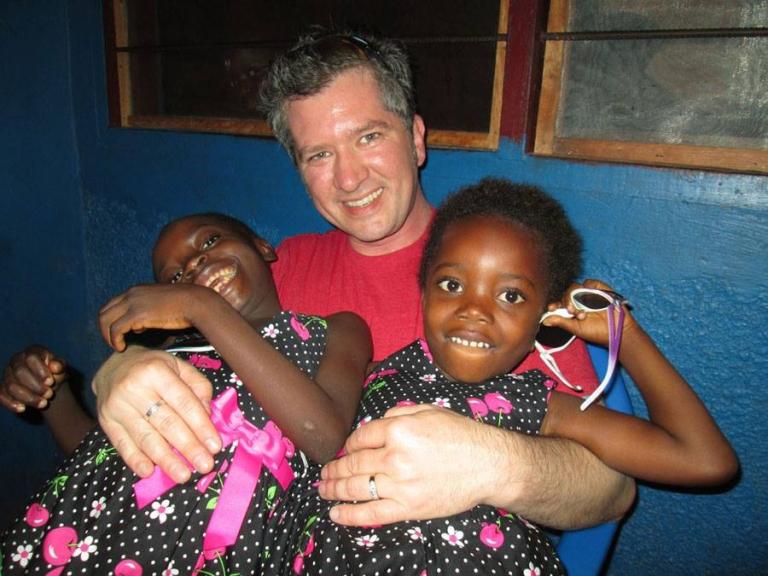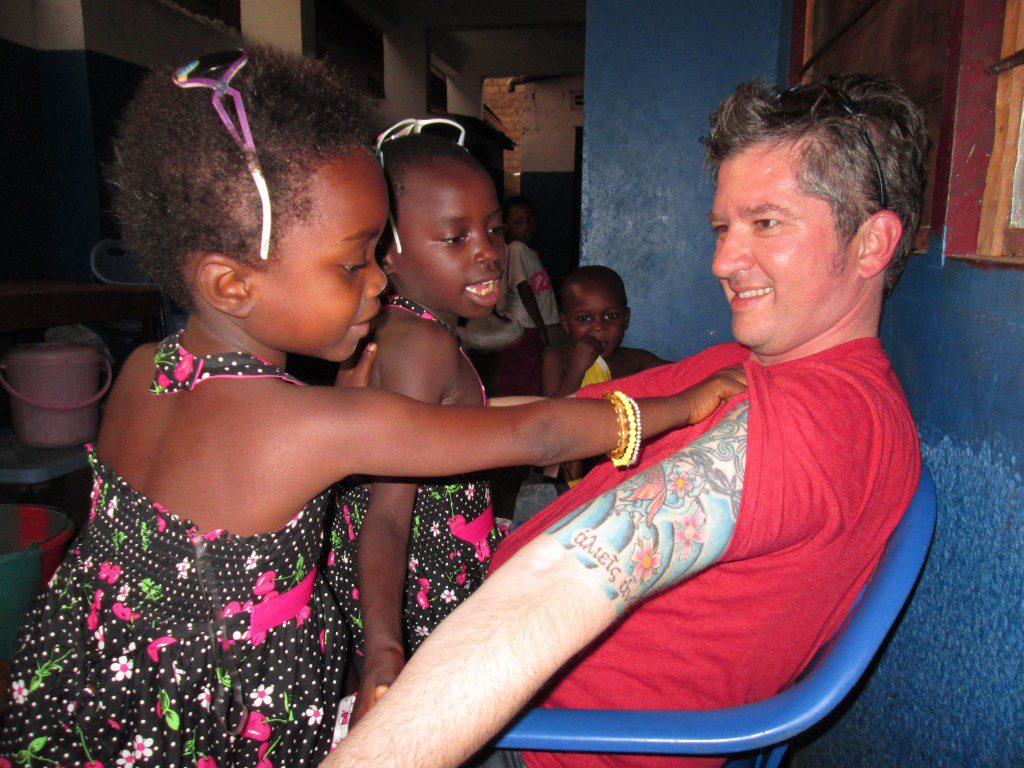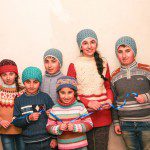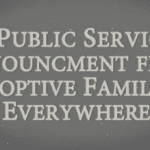This blog was supposed to have a way cooler title.
I had longed for the day when I’d write this. I’ve had it written in my mind for about three years; it was originally to be called, “Our Family Just Grew by Four Feet!” and it was going to have a cute picture of four little feet.
And everyone on the Internet was going to say, “Congratulations, BLC! They are sooooo adorable!”
But that’s not the blog I’m writing today. What was supposed to be a fun announcement to the world has turned into a way for me to try to put some closure on this chapter of my life, and to begin a journey to someplace that hurts a little less. I’m not sure that’s possible, but I need to try.
So, here is our story… which ironically could better be titled, “Our Family Just Shrunk By Four Feet.”
A few years ago we decided to adopt again.
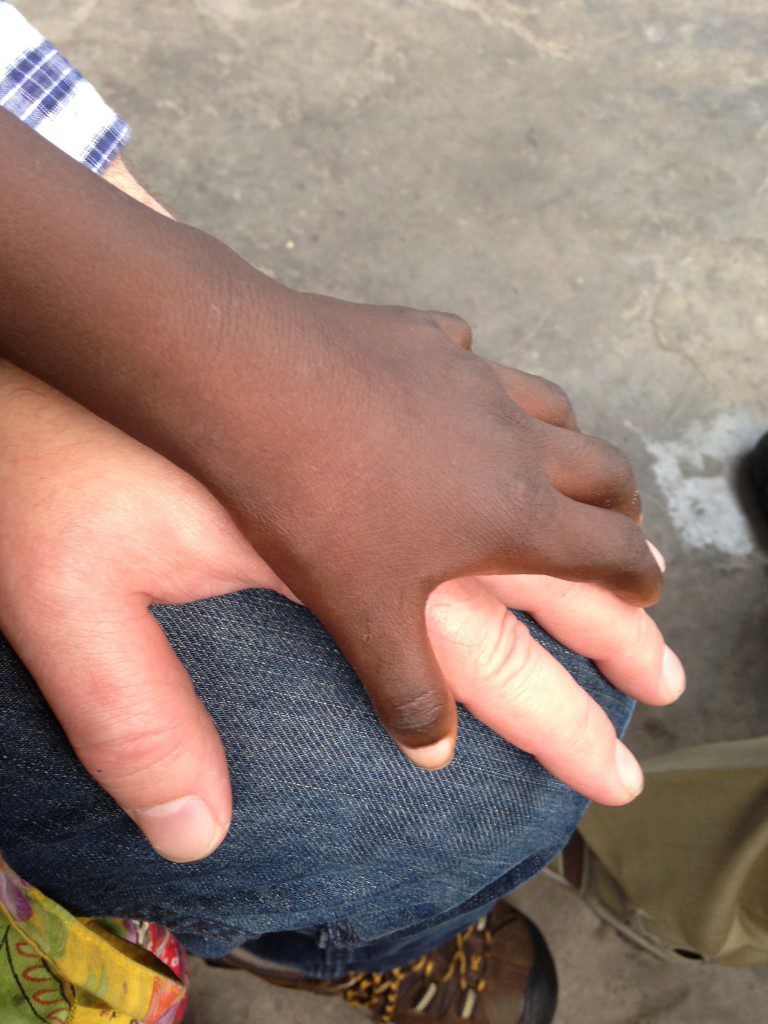 We had always known that adoption was our “thing” in life, but after spending a long season with our home converted into a would-be-hospital, after months of in-home therapy, attachment therapy, locking the knife drawer, gutting the house of potentially sharp objects, and a host of other things that unexpectedly became our life—including the pain of loss we had never really imagined– we weren’t sure what the future would hold anymore.
We had always known that adoption was our “thing” in life, but after spending a long season with our home converted into a would-be-hospital, after months of in-home therapy, attachment therapy, locking the knife drawer, gutting the house of potentially sharp objects, and a host of other things that unexpectedly became our life—including the pain of loss we had never really imagined– we weren’t sure what the future would hold anymore.
As we processed the painful loss and considered our future, we kept coming back to the belief that adoption was still part of our story. We also realized we couldn’t let our painful experience derail us from the life we both knew we were called to live.
So, we began adopting again.
We told a handful of people in real life, but decided that we wouldn’t be public about our process. We needed some aspects of our life that weren’t windows that thousands of strangers could peer into on a daily basis.
We were nervous as we began the process, but quickly became excited. Unlike our first adoption, where we did not know the identity of our children until right before we went to Peru, this time we knew the faces and names of our children from the beginning.
We were adopting Gracia and Janella from the Democratic Republic of Congo.
While we didn’t expect it, adopting again began to be a healing process for us. It was encouraging and brought hope into our home for the first time in as long as we could remember.
As soon as we had agreed to adopt the girls, things started quickly falling into place, in a process that seemed like it would go quickly. It felt totally unlike the 2+ years it took to adopt our first daughters.
We believed. We had hope. We internalized it. Our home was finally experiencing a rebirth after years of difficulty and sadness.
This time it would be different, or so we believed. With each photo we got of them, each update from the orphanage, our dreams for the future were once again full of beauty.
The actual adoption process flew by, and before we knew it, we had judgment from the court: we were now the parents of the girls.
But then, in the midst of our joy and optimism, the world collapsed— again.
And when I say collapsed, I mean everything that could go wrong did go wrong.
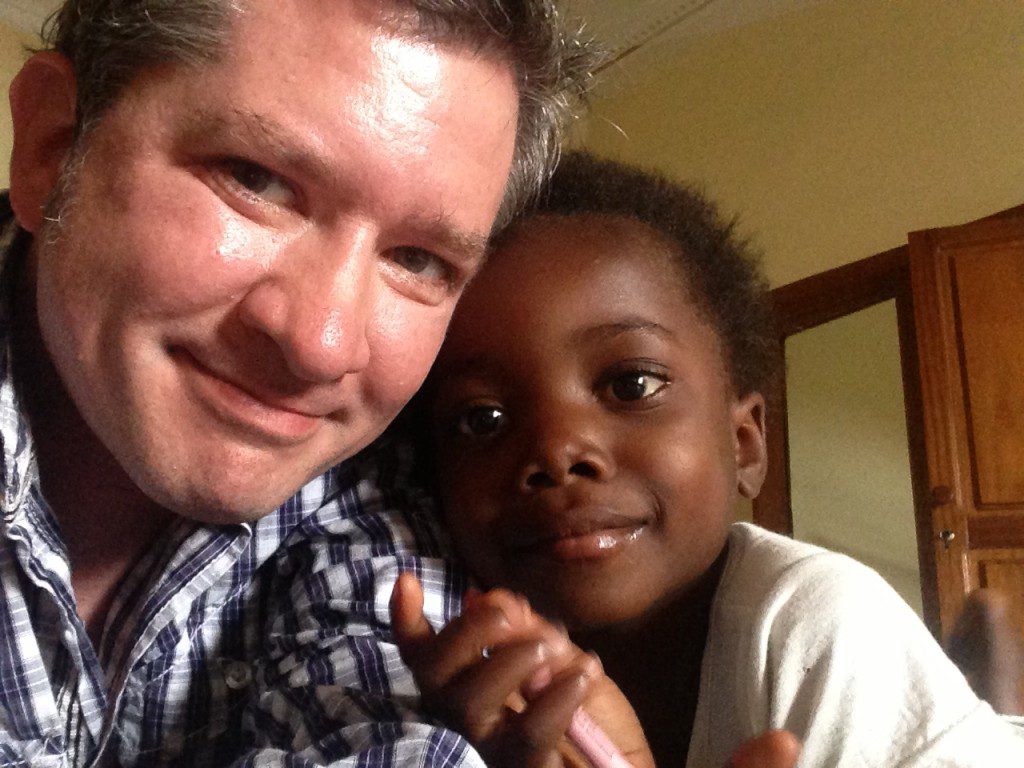 First, an official in the DRC ordered immigration to stop issuing exit letters to adopted children—preventing legally adopted children from leaving the country. This became a seeming never-ending crisis, which resulted in actions and advocacy from the US Congress, Secretary of State, and media outlets across the country. There were even some adopted children who died while waiting.
First, an official in the DRC ordered immigration to stop issuing exit letters to adopted children—preventing legally adopted children from leaving the country. This became a seeming never-ending crisis, which resulted in actions and advocacy from the US Congress, Secretary of State, and media outlets across the country. There were even some adopted children who died while waiting.
Then the orphanage the girls were in abruptly shut down, complicating things.
And then this or that would pop up as something that needed to be acquired or finished– adoptive parents know that there’s always a host of things the pop up at every stage of the journey, even when you think it’s complete.
Along with the 2+ years of waiting out the government shut-down, and normal adoption issues that crop up, things seemed to continue to spiral into a mess of complexity. Between communication challenges with all the players in the process, families who contributed to adoption corruption by smuggling their kids out of the country without giving two hoots that their illegal behavior would only serve to harm those of us who insist on completing adoptions legally and ethically– even if that means failure– having waited over two years to receive some final documents that never materialized, and a host of other complications, we have slowly come to accept that this journey is finally over.
International adoptions are incredibly complex- no matter where you adopt from or what agency you use. When things go bad, there’s not always someone to tell you that it’s officially over. Instead, parents in our cases are often left to figure out when the end is the end. Like a failed presidential candidate who eventually has to acknowledge on his or her own that there’s no longer a plausible path to achieving victory, parents are put in the difficult position of being the first to acknowledge that it’s over.
Lately we have struggled to accept that such a moment came for us, and time now dictates we face it.
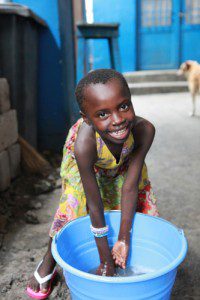 We’ve been living in denial about it for a while (or maybe just living in silence) only to have the pain of our wound reopened as we’ve watched so many of the other children released from the Congo. Perhaps one of the most painful moments was watching a US newscast of some children who made it out… two of whom were wearing dresses we gave our daughters a few years ago.
We’ve been living in denial about it for a while (or maybe just living in silence) only to have the pain of our wound reopened as we’ve watched so many of the other children released from the Congo. Perhaps one of the most painful moments was watching a US newscast of some children who made it out… two of whom were wearing dresses we gave our daughters a few years ago.
I still remember the day we picked those dresses out and mailed them to the orphanage. I’m sure they’ll forever be burned in my mind.
Yes, we’ve been living in denial, but there’s no room left for living in denial anymore, no matter how painful it may be to finally acknowledge that there is not a viable path to completion. Even with the all the difficulties that Congolese adoptions presented, most of the families in our process were able to complete their adoptions. But that moment isn’t going to be happening for us.
Another dream is dead. It’s over.
We’re now entering another chapter of wrestling with what to do when you’re not going to get to watch your kids grow up. And by some sick twist of fate, it’s not the first time we’ve had to ask ourselves this question.
Even as I write this I am finding myself confronted by emotions I hadn’t given myself permission to feel yet. There’s just so much grieving that needs to be done. And honestly, I don’t know if I have the energy to grieve anymore. I’m seriously burned out on being sad, and am craving a vacation from life.
Unfortunately, grief doesn’t let you run away from it. It’s one of those relentless things that follows you wherever you go until you sit down at a table and look it in the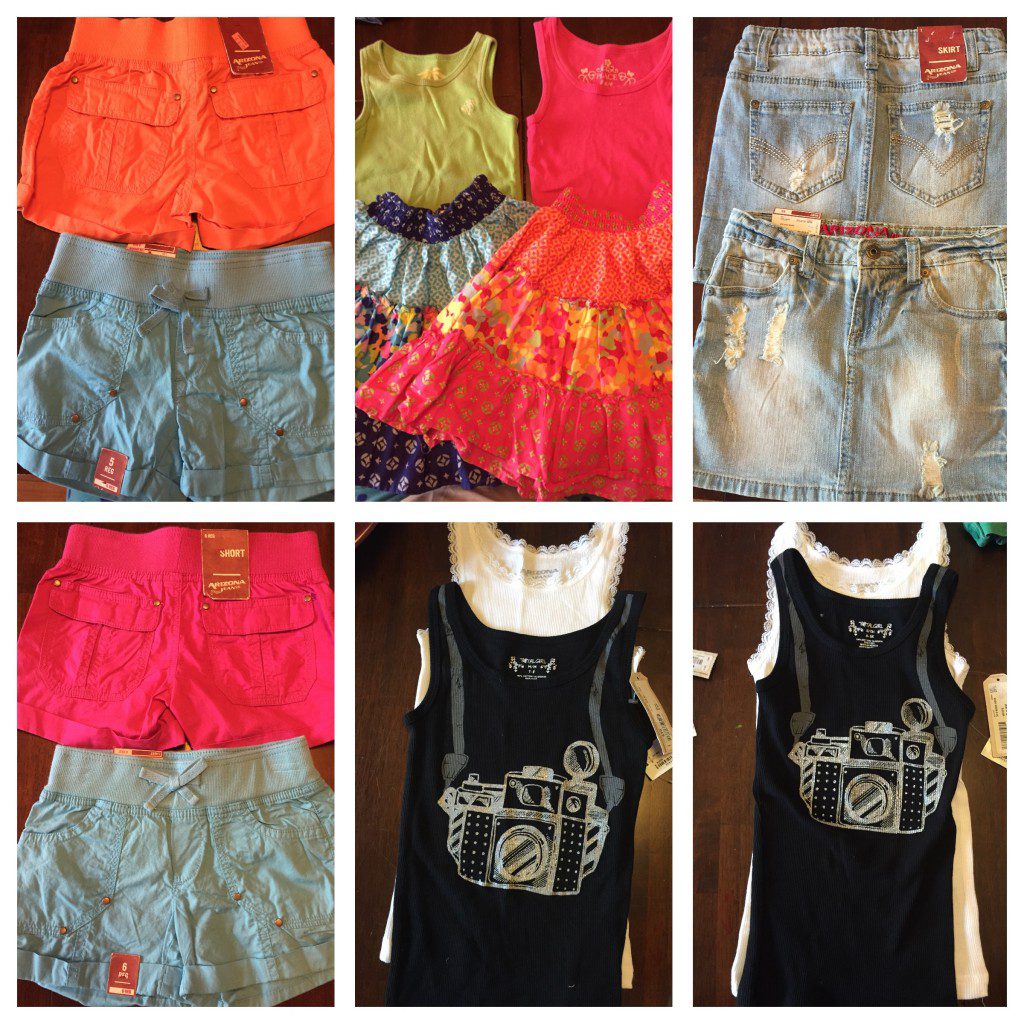 face.
face.
And face it I must. Not because I want to, but because it confronts me without mercy.
I’m realizing my next chapter in life involves some long talks with grief.
There’s the grieving that the adoption is over. It failed.
There’s the grieving over the fact that we adopted 4 children in our life, but will never be able to parent 3 of them the way we dreamed we would.
There’s been the grieving as we sold their beds, and packed up all the bins of clothes we picked out saying, “Oh, this will look so cute on them.”
There’s grieving that I’ll never again know Gracia’s giggle as I bounce her on my knee while saying, “Trot, trot, to Boston, trot, trot to Lynn, you better watch out or you’re gonna fall in!” or what it’s like to watch her go from stoic to slowly opening up and smiling bright after an hour of being held and loved.
There’s grieving that I’ll never again get to hear Janella talk to me a mile a minute in Lingala as if I know what she’s saying. That I’ll never again know what she’s like after eating a bag of my energy gummies thinking they were candy (ok, maybe it’s good that’s never going to happen again). That the last time I sat on the edge of the bed and rubbed her back while she slept, was the last. Or that I’ll never again wake up to her slapping two slices of bread and a package of tuna on my stomach, as if to say, “Wake up and make me a sandwich.”
There’s grieving this idea that I’d have a room spilling over with lots of kids and grandkids at Christmas in a few years, a scene that’s not going to happen.
Then there’s grieving for our daughter, Johanna, who so desperately wanted siblings to grow up with, but will not.
There’s grieving the reality that this was it— there are no more adoptions for us, and there are no possibilities of biological children anymore. It’s like hearing the director say, “And that’s a wrap folks!” when you’re like, “But wait, this wasn’t supposed to be the last scene.”
The raw truth is that after all we have been through since 2011, we just don’t have the emotional capacity to walk the adoption journey again. It’s not happening– our window of life for adopting new children or producing biological ones, is closed solid.
Beyond the emotional capital, we don’t have the money anyway. We have lived very, very simply. We’re still waiting to be homeowners. We’ve frequently sold what we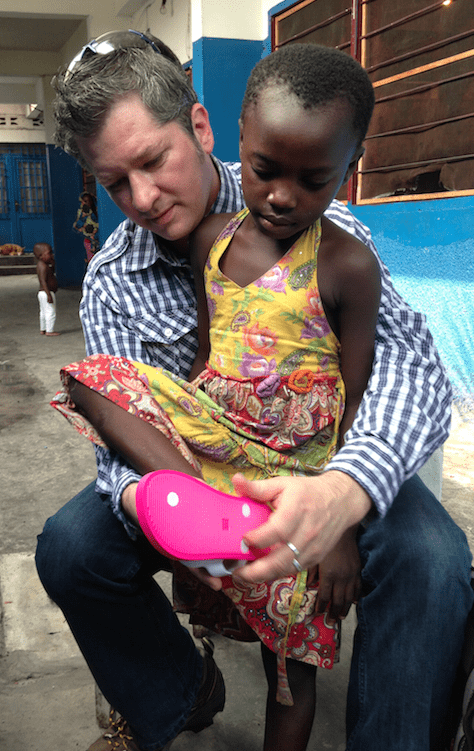 could to make payments to adoption agencies, investigators, USCIS… and there is nothing left to sell anymore. There’s nothing left to give. The financial numbers in adoption are no small change, even if we did have the emotional capacity to risk ourselves again.
could to make payments to adoption agencies, investigators, USCIS… and there is nothing left to sell anymore. There’s nothing left to give. The financial numbers in adoption are no small change, even if we did have the emotional capacity to risk ourselves again.
Since 2011, it feels as if we have given every drop of energy, focus, and money we had, toward the cause of adopting and raising children. We sold anything we didn’t use. If we didn’t absolutely need it, we went without. We became experts on ELL and disability law. We learned so much about IEPs that it feels like we often educate the educators. We know the ins and outs on everything from equine therapy, attachment therapy, to the limitations of traditional talk therapy. Adoption, and all that comes with raising older children with special needs, became our day-in-day-out life.
To use a sporting analogy, “We played hard, and we left it all on the field.”
I’m a person of many flaws and mistakes. Like a lot. And if there really is a hell, I’ll admit that I’m probably going there for good and just reasons.
But for all the shitty mistakes I made in life, I can say this with a clear conscience: I withheld nothing from God when it came to money, the command to care for orphans, or when he asked me to put my deepest dreams on the altar and walk away.
That part, I @%$&! did.
And so, if hell is my final destination, this one part of me will go there with my head held high and my integrity intact.
We’re tired now. We’re burned out– both individually and collectively. We followed our calling with no regrets, yet our calling involved a level of loss and pain we didn’t quite budget for… and now we have to figure out what that means for the future, and how to navigate those uncharted waters. We’re pretty much on empty while being thrust into a new chapter in life.
We’re grieving another loss, and what the realities of all this loss means and represents for us as individuals, as a couple, and as a family.
And we’re just not sure where to go next.
We’ll have to answer the question, “What do you do when you’re not going to get to see your kids grow up?” Honestly, we hadn’t finished answering that question the first time, and I’m no closer to an answer than I was a few years ago.
A year ago I shared with you a moment I experienced while sitting atop Mt. Nebo where Moses died. In that moment I felt as if God was asking me to let go of some of my deepest dreams for life, and looking back, I suppose this was it.
And as hard as it sucks right now, I’m going to reflect upon the words of Jesus that I heard spoken to my heart that day: “Unless a grain falls to the ground and dies, it remains alone. But if it dies, it produces much fruit.”
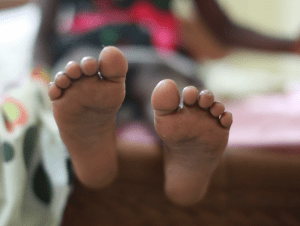 I don’t know what that fruit might or could be, but at this point, hope that God still brings life out of so much death is hope I must cling to– even when I’m not sure I believe it.
I don’t know what that fruit might or could be, but at this point, hope that God still brings life out of so much death is hope I must cling to– even when I’m not sure I believe it.
The anticipation and excitement of sharing “Our Family Just Grew by Four Feet” has now become grieving another loss, and there is no cool way to title the loss of those precious feet.
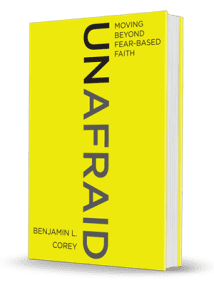 Dr. Benjamin L. Corey is a public theologian and cultural anthropologist who is a two-time graduate of Gordon-Conwell Theological Seminary with graduate degrees in the fields of Theology and International Culture, and holds a doctorate in Intercultural Studies from Fuller Theological Seminary. He is also the author of the new book, Unafraid: Moving Beyond Fear-Based Faith, which is available wherever good books are sold. www.Unafraid-book.com.
Dr. Benjamin L. Corey is a public theologian and cultural anthropologist who is a two-time graduate of Gordon-Conwell Theological Seminary with graduate degrees in the fields of Theology and International Culture, and holds a doctorate in Intercultural Studies from Fuller Theological Seminary. He is also the author of the new book, Unafraid: Moving Beyond Fear-Based Faith, which is available wherever good books are sold. www.Unafraid-book.com.

